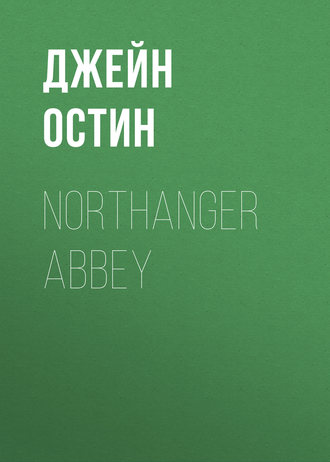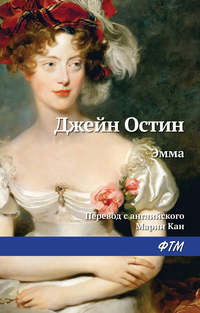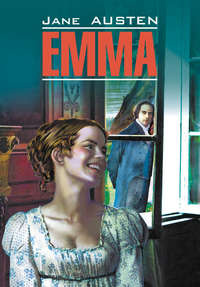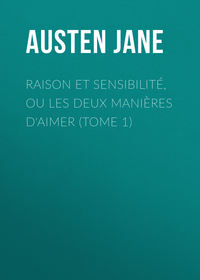 полная версия
полная версияNorthanger Abbey
“Errand! To me!”
“How shall I tell you! Oh! How shall I tell you!”
A new idea now darted into Catherine’s mind, and turning as pale as her friend, she exclaimed, “‘Tis a messenger from Woodston!”
“You are mistaken, indeed,” returned Eleanor, looking at her most compassionately; “it is no one from Woodston. It is my father himself.” Her voice faltered, and her eyes were turned to the ground as she mentioned his name. His unlooked-for return was enough in itself to make Catherine’s heart sink, and for a few moments she hardly supposed there were anything worse to be told. She said nothing; and Eleanor, endeavouring to collect herself and speak with firmness, but with eyes still cast down, soon went on. “You are too good, I am sure, to think the worse of me for the part I am obliged to perform. I am indeed a most unwilling messenger. After what has so lately passed, so lately been settled between us – how joyfully, how thankfully on my side! – as to your continuing here as I hoped for many, many weeks longer, how can I tell you that your kindness is not to be accepted – and that the happiness your company has hitherto given us is to be repaid by – But I must not trust myself with words. My dear Catherine, we are to part. My father has recollected an engagement that takes our whole family away on Monday. We are going to Lord Longtown’s, near Hereford, for a fortnight. Explanation and apology are equally impossible. I cannot attempt either.”
“My dear Eleanor,” cried Catherine, suppressing her feelings as well as she could, “do not be so distressed. A second engagement must give way to a first. I am very, very sorry we are to part – so soon, and so suddenly too; but I am not offended, indeed I am not. I can finish my visit here, you know, at any time; or I hope you will come to me. Can you, when you return from this lord’s, come to Fullerton?”
“It will not be in my power, Catherine.”
“Come when you can, then.”
Eleanor made no answer; and Catherine’s thoughts recurring to something more directly interesting, she added, thinking aloud, “Monday – so soon as Monday; and you all go. Well, I am certain of – I shall be able to take leave, however. I need not go till just before you do, you know. Do not be distressed, Eleanor, I can go on Monday very well. My father and mother’s having no notice of it is of very little consequence. The general will send a servant with me, I dare say, half the way – and then I shall soon be at Salisbury, and then I am only nine miles from home.”
“Ah, Catherine! Were it settled so, it would be somewhat less intolerable, though in such common attentions you would have received but half what you ought. But – how can I tell you? – tomorrow morning is fixed for your leaving us, and not even the hour is left to your choice; the very carriage is ordered, and will be here at seven o’clock, and no servant will be offered you.”
Catherine sat down, breathless and speechless. “I could hardly believe my senses, when I heard it; and no displeasure, no resentment that you can feel at this moment, however justly great, can be more than I myself – but I must not talk of what I felt. Oh! That I could suggest anything in extenuation! Good God! What will your father and mother say! After courting you from the protection of real friends to this – almost double distance from your home, to have you driven out of the house, without the considerations even of decent civility! Dear, dear Catherine, in being the bearer of such a message, I seem guilty myself of all its insult; yet, I trust you will acquit me, for you must have been long enough in this house to see that I am but a nominal mistress of it, that my real power is nothing.”
“Have I offended the general?” said Catherine in a faltering voice.
“Alas! For my feelings as a daughter, all that I know, all that I answer for, is that you can have given him no just cause of offence. He certainly is greatly, very greatly discomposed; I have seldom seen him more so. His temper is not happy, and something has now occurred to ruffle it in an uncommon degree; some disappointment, some vexation, which just at this moment seems important, but which I can hardly suppose you to have any concern in, for how is it possible?”
It was with pain that Catherine could speak at all; and it was only for Eleanor’s sake that she attempted it. “I am sure,” said she, “I am very sorry if I have offended him. It was the last thing I would willingly have done. But do not be unhappy, Eleanor. An engagement, you know, must be kept. I am only sorry it was not recollected sooner, that I might have written home. But it is of very little consequence.”
“I hope, I earnestly hope, that to your real safety it will be of none; but to everything else it is of the greatest consequence: to comfort, appearance, propriety, to your family, to the world. Were your friends, the Allens, still in Bath, you might go to them with comparative ease; a few hours would take you there; but a journey of seventy miles, to be taken post by you, at your age, alone, unattended!”
“Oh, the journey is nothing. Do not think about that. And if we are to part, a few hours sooner or later, you know, makes no difference. I can be ready by seven. Let me be called in time.” Eleanor saw that she wished to be alone; and believing it better for each that they should avoid any further conversation, now left her with, “I shall see you in the morning.”
Catherine’s swelling heart needed relief. In Eleanor’s presence friendship and pride had equally restrained her tears, but no sooner was she gone than they burst forth in torrents. Turned from the house, and in such a way! Without any reason that could justify, any apology that could atone for the abruptness, the rudeness, nay, the insolence of it. Henry at a distance – not able even to bid him farewell. Every hope, every expectation from him suspended, at least, and who could say how long? Who could say when they might meet again? And all this by such a man as General Tilney, so polite, so well bred, and heretofore so particularly fond of her! It was as incomprehensible as it was mortifying and grievous. From what it could arise, and where it would end, were considerations of equal perplexity and alarm. The manner in which it was done so grossly uncivil, hurrying her away without any reference to her own convenience, or allowing her even the appearance of choice as to the time or mode of her travelling; of two days, the earliest fixed on, and of that almost the earliest hour, as if resolved to have her gone before he was stirring in the morning, that he might not be obliged even to see her. What could all this mean but an intentional affront? By some means or other she must have had the misfortune to offend him. Eleanor had wished to spare her from so painful a notion, but Catherine could not believe it possible that any injury or any misfortune could provoke such ill will against a person not connected, or, at least, not supposed to be connected with it.
Heavily passed the night. Sleep, or repose that deserved the name of sleep, was out of the question. That room, in which her disturbed imagination had tormented her on her first arrival, was again the scene of agitated spirits and unquiet slumbers. Yet how different now the source of her inquietude from what it had been then – how mournfully superior in reality and substance! Her anxiety had foundation in fact, her fears in probability; and with a mind so occupied in the contemplation of actual and natural evil, the solitude of her situation, the darkness of her chamber, the antiquity of the building, were felt and considered without the smallest emotion; and though the wind was high, and often produced strange and sudden noises throughout the house, she heard it all as she lay awake, hour after hour, without curiosity or terror.
Soon after six Eleanor entered her room, eager to show attention or give assistance where it was possible; but very little remained to be done. Catherine had not loitered; she was almost dressed, and her packing almost finished. The possibility of some conciliatory message from the general occurred to her as his daughter appeared. What so natural, as that anger should pass away and repentance succeed it? And she only wanted to know how far, after what had passed, an apology might properly be received by her. But the knowledge would have been useless here; it was not called for; neither clemency nor dignity was put to the trial – Eleanor brought no message. Very little passed between them on meeting; each found her greatest safety in silence, and few and trivial were the sentences exchanged while they remained upstairs, Catherine in busy agitation completing her dress, and Eleanor with more goodwill than experience intent upon filling the trunk. When everything was done they left the room, Catherine lingering only half a minute behind her friend to throw a parting glance on every well-known, cherished object, and went down to the breakfast-parlour, where breakfast was prepared. She tried to eat, as well to save herself from the pain of being urged as to make her friend comfortable; but she had no appetite, and could not swallow many mouthfuls. The contrast between this and her last breakfast in that room gave her fresh misery, and strengthened her distaste for everything before her. It was not four and twenty hours ago since they had met there to the same repast, but in circumstances how different! With what cheerful ease, what happy, though false, security, had she then looked around her, enjoying everything present, and fearing little in future, beyond Henry’s going to Woodston for a day! Happy, happy breakfast! For Henry had been there; Henry had sat by her and helped her. These reflections were long indulged undisturbed by any address from her companion, who sat as deep in thought as herself; and the appearance of the carriage was the first thing to startle and recall them to the present moment. Catherine’s colour rose at the sight of it; and the indignity with which she was treated, striking at that instant on her mind with peculiar force, made her for a short time sensible only of resentment. Eleanor seemed now impelled into resolution and speech.
“You must write to me, Catherine,” she cried; “you must let me hear from you as soon as possible. Till I know you to be safe at home, I shall not have an hour’s comfort. For one letter, at all risks, all hazards, I must entreat. Let me have the satisfaction of knowing that you are safe at Fullerton, and have found your family well, and then, till I can ask for your correspondence as I ought to do, I will not expect more. Direct to me at Lord Longtown’s, and, I must ask it, under cover to Alice.”
“No, Eleanor, if you are not allowed to receive a letter from me, I am sure I had better not write. There can be no doubt of my getting home safe.”
Eleanor only replied, “I cannot wonder at your feelings. I will not importune you. I will trust to your own kindness of heart when I am at a distance from you.” But this, with the look of sorrow accompanying it, was enough to melt Catherine’s pride in a moment, and she instantly said, “Oh, Eleanor, I will write to you indeed.”
There was yet another point which Miss Tilney was anxious to settle, though somewhat embarrassed in speaking of. It had occurred to her that after so long an absence from home, Catherine might not be provided with money enough for the expenses of her journey, and, upon suggesting it to her with most affectionate offers of accommodation, it proved to be exactly the case. Catherine had never thought on the subject till that moment, but, upon examining her purse, was convinced that but for this kindness of her friend, she might have been turned from the house without even the means of getting home; and the distress in which she must have been thereby involved filling the minds of both, scarcely another word was said by either during the time of their remaining together. Short, however, was that time. The carriage was soon announced to be ready; and Catherine, instantly rising, a long and affectionate embrace supplied the place of language in bidding each other adieu; and, as they entered the hall, unable to leave the house without some mention of one whose name had not yet been spoken by either, she paused a moment, and with quivering lips just made it intelligible that she left “her kind remembrance for her absent friend.” But with this approach to his name ended all possibility of restraining her feelings; and, hiding her face as well as she could with her handkerchief, she darted across the hall, jumped into the chaise, and in a moment was driven from the door.
CHAPTER 29
Catherine was too wretched to be fearful. The journey in itself had no terrors for her; and she began it without either dreading its length or feeling its solitariness. Leaning back in one corner of the carriage, in a violent burst of tears, she was conveyed some miles beyond the walls of the abbey before she raised her head; and the highest point of ground within the park was almost closed from her view before she was capable of turning her eyes towards it. Unfortunately, the road she now travelled was the same which only ten days ago she had so happily passed along in going to and from Woodston; and, for fourteen miles, every bitter feeling was rendered more severe by the review of objects on which she had first looked under impressions so different. Every mile, as it brought her nearer Woodston, added to her sufferings, and when within the distance of five, she passed the turning which led to it, and thought of Henry, so near, yet so unconscious, her grief and agitation were excessive.
The day which she had spent at that place had been one of the happiest of her life. It was there, it was on that day, that the general had made use of such expressions with regard to Henry and herself, had so spoken and so looked as to give her the most positive conviction of his actually wishing their marriage. Yes, only ten days ago had he elated her by his pointed regard – had he even confused her by his too significant reference! And now – what had she done, or what had she omitted to do, to merit such a change?
The only offence against him of which she could accuse herself had been such as was scarcely possible to reach his knowledge. Henry and her own heart only were privy to the shocking suspicions which she had so idly entertained; and equally safe did she believe her secret with each. Designedly, at least, Henry could not have betrayed her. If, indeed, by any strange mischance his father should have gained intelligence of what she had dared to think and look for, of her causeless fancies and injurious examinations, she could not wonder at any degree of his indignation. If aware of her having viewed him as a murderer, she could not wonder at his even turning her from his house. But a justification so full of torture to herself, she trusted, would not be in his power.
Anxious as were all her conjectures on this point, it was not, however, the one on which she dwelt most. There was a thought yet nearer, a more prevailing, more impetuous concern. How Henry would think, and feel, and look, when he returned on the morrow to Northanger and heard of her being gone, was a question of force and interest to rise over every other, to be never ceasing, alternately irritating and soothing; it sometimes suggested the dread of his calm acquiescence, and at others was answered by the sweetest confidence in his regret and resentment. To the general, of course, he would not dare to speak; but to Eleanor – what might he not say to Eleanor about her?
In this unceasing recurrence of doubts and inquiries, on any one article of which her mind was incapable of more than momentary repose, the hours passed away, and her journey advanced much faster than she looked for. The pressing anxieties of thought, which prevented her from noticing anything before her, when once beyond the neighbourhood of Woodston, saved her at the same time from watching her progress; and though no object on the road could engage a moment’s attention, she found no stage of it tedious. From this, she was preserved too by another cause, by feeling no eagerness for her journey’s conclusion; for to return in such a manner to Fullerton was almost to destroy the pleasure of a meeting with those she loved best, even after an absence such as hers – an eleven weeks’ absence. What had she to say that would not humble herself and pain her family, that would not increase her own grief by the confession of it, extend an useless resentment, and perhaps involve the innocent with the guilty in undistinguishing ill will? She could never do justice to Henry and Eleanor’s merit; she felt it too strongly for expression; and should a dislike be taken against them, should they be thought of unfavourably, on their father’s account, it would cut her to the heart.
With these feelings, she rather dreaded than sought for the first view of that well-known spire which would announce her within twenty miles of home. Salisbury she had known to be her point on leaving Northanger; but after the first stage she had been indebted to the post-masters for the names of the places which were then to conduct her to it; so great had been her ignorance of her route. She met with nothing, however, to distress or frighten her. Her youth, civil manners, and liberal pay procured her all the attention that a traveller like herself could require; and stopping only to change horses, she travelled on for about eleven hours without accident or alarm, and between six and seven o’clock in the evening found herself entering Fullerton.
A heroine returning, at the close of her career, to her native village, in all the triumph of recovered reputation, and all the dignity of a countess, with a long train of noble relations in their several phaetons, and three waiting-maids in a travelling chaise and four, behind her, is an event on which the pen of the contriver may well delight to dwell; it gives credit to every conclusion, and the author must share in the glory she so liberally bestows. But my affair is widely different; I bring back my heroine to her home in solitude and disgrace; and no sweet elation of spirits can lead me into minuteness. A heroine in a hack post-chaise is such a blow upon sentiment, as no attempt at grandeur or pathos can withstand. Swiftly therefore shall her post-boy drive through the village, amid the gaze of Sunday groups, and speedy shall be her descent from it.
But, whatever might be the distress of Catherine’s mind, as she thus advanced towards the parsonage, and whatever the humiliation of her biographer in relating it, she was preparing enjoyment of no everyday nature for those to whom she went; first, in the appearance of her carriage – and secondly, in herself. The chaise of a traveller being a rare sight in Fullerton, the whole family were immediately at the window; and to have it stop at the sweep-gate was a pleasure to brighten every eye and occupy every fancy – a pleasure quite unlooked for by all but the two youngest children, a boy and girl of six and four years old, who expected a brother or sister in every carriage. Happy the glance that first distinguished Catherine! Happy the voice that proclaimed the discovery! But whether such happiness were the lawful property of George or Harriet could never be exactly understood.
Her father, mother, Sarah, George, and Harriet, all assembled at the door to welcome her with affectionate eagerness, was a sight to awaken the best feelings of Catherine’s heart; and in the embrace of each, as she stepped from the carriage, she found herself soothed beyond anything that she had believed possible. So surrounded, so caressed, she was even happy! In the joyfulness of family love everything for a short time was subdued, and the pleasure of seeing her, leaving them at first little leisure for calm curiosity, they were all seated round the tea-table, which Mrs. Morland had hurried for the comfort of the poor traveller, whose pale and jaded looks soon caught her notice, before any inquiry so direct as to demand a positive answer was addressed to her.
Reluctantly, and with much hesitation, did she then begin what might perhaps, at the end of half an hour, be termed, by the courtesy of her hearers, an explanation; but scarcely, within that time, could they at all discover the cause, or collect the particulars, of her sudden return. They were far from being an irritable race; far from any quickness in catching, or bitterness in resenting, affronts: but here, when the whole was unfolded, was an insult not to be overlooked, nor, for the first half hour, to be easily pardoned. Without suffering any romantic alarm, in the consideration of their daughter’s long and lonely journey, Mr. and Mrs. Morland could not but feel that it might have been productive of much unpleasantness to her; that it was what they could never have voluntarily suffered; and that, in forcing her on such a measure, General Tilney had acted neither honourably nor feelingly – neither as a gentleman nor as a parent. Why he had done it, what could have provoked him to such a breach of hospitality, and so suddenly turned all his partial regard for their daughter into actual ill will, was a matter which they were at least as far from divining as Catherine herself; but it did not oppress them by any means so long; and, after a due course of useless conjecture, that “it was a strange business, and that he must be a very strange man,” grew enough for all their indignation and wonder; though Sarah indeed still indulged in the sweets of incomprehensibility, exclaiming and conjecturing with youthful ardour. “My dear, you give yourself a great deal of needless trouble,” said her mother at last; “depend upon it, it is something not at all worth understanding.”
“I can allow for his wishing Catherine away, when he recollected this engagement,” said Sarah, “but why not do it civilly?”
“I am sorry for the young people,” returned Mrs. Morland; “they must have a sad time of it; but as for anything else, it is no matter now; Catherine is safe at home, and our comfort does not depend upon General Tilney.” Catherine sighed. “Well,” continued her philosophic mother, “I am glad I did not know of your journey at the time; but now it is all over, perhaps there is no great harm done. It is always good for young people to be put upon exerting themselves; and you know, my dear Catherine, you always were a sad little scatter-brained creature; but now you must have been forced to have your wits about you, with so much changing of chaises and so forth; and I hope it will appear that you have not left anything behind you in any of the pockets.”
Catherine hoped so too, and tried to feel an interest in her own amendment, but her spirits were quite worn down; and, to be silent and alone becoming soon her only wish, she readily agreed to her mother’s next counsel of going early to bed. Her parents, seeing nothing in her ill looks and agitation but the natural consequence of mortified feelings, and of the unusual exertion and fatigue of such a journey, parted from her without any doubt of their being soon slept away; and though, when they all met the next morning, her recovery was not equal to their hopes, they were still perfectly unsuspicious of there being any deeper evil. They never once thought of her heart, which, for the parents of a young lady of seventeen, just returned from her first excursion from home, was odd enough!
As soon as breakfast was over, she sat down to fulfil her promise to Miss Tilney, whose trust in the effect of time and distance on her friend’s disposition was already justified, for already did Catherine reproach herself with having parted from Eleanor coldly, with having never enough valued her merits or kindness, and never enough commiserated her for what she had been yesterday left to endure. The strength of these feelings, however, was far from assisting her pen; and never had it been harder for her to write than in addressing Eleanor Tilney. To compose a letter which might at once do justice to her sentiments and her situation, convey gratitude without servile regret, be guarded without coldness, and honest without resentment – a letter which Eleanor might not be pained by the perusal of – and, above all, which she might not blush herself, if Henry should chance to see, was an undertaking to frighten away all her powers of performance; and, after long thought and much perplexity, to be very brief was all that she could determine on with any confidence of safety. The money therefore which Eleanor had advanced was enclosed with little more than grateful thanks, and the thousand good wishes of a most affectionate heart.








![Love and Freindship [sic]](/covers_200/25019987.jpg)
